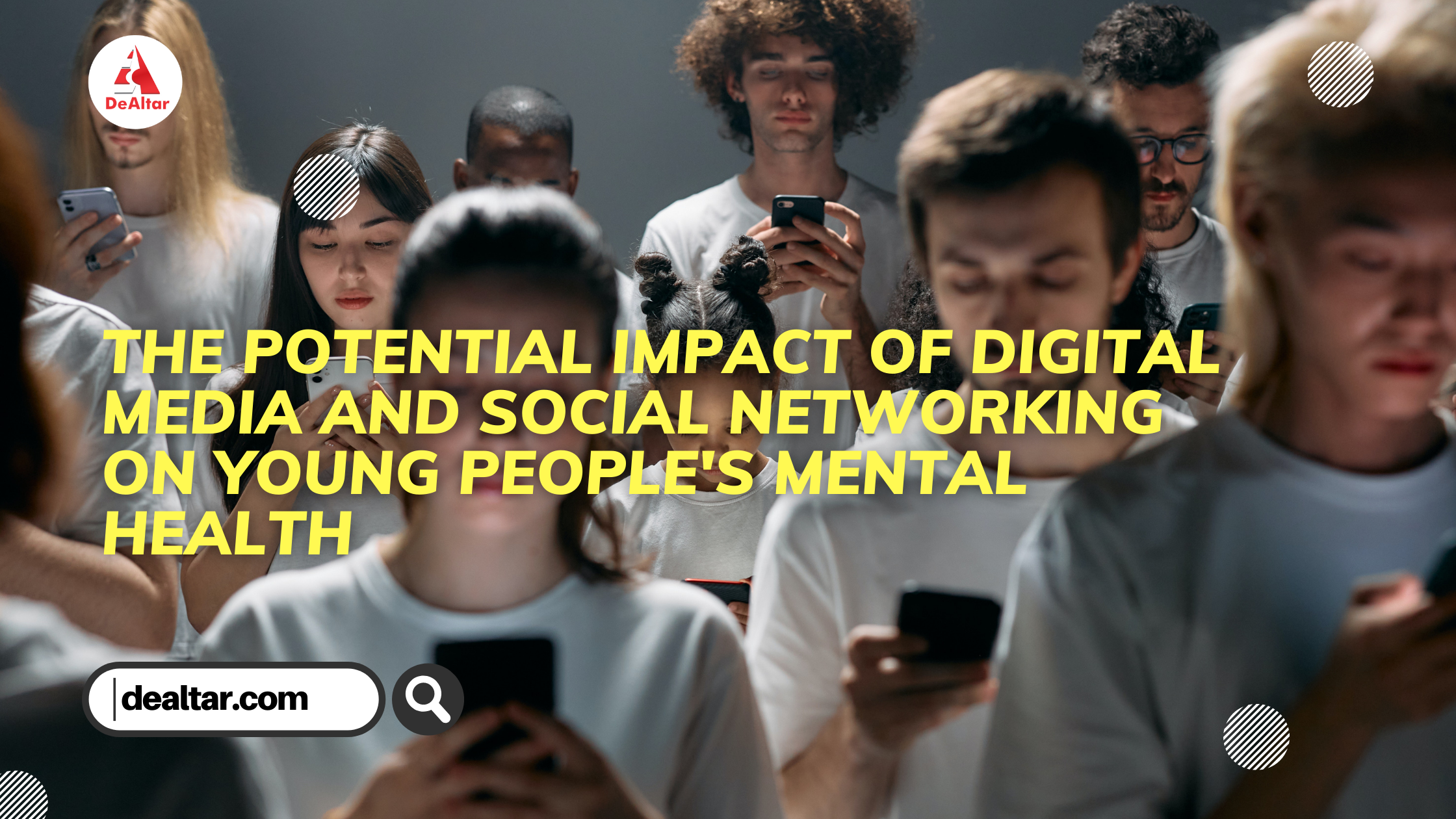The Potential Impact of Digital Media and Social Networking on Young People’s Mental Health
The rise of digital media and social networking platforms has changed the way people interact and communicate with each other. With the spread of smartphones and internet access, young people have become more reliant on these technologies to stay connected with their friends and families. While digital media and social networking platforms offer many benefits, there is growing concern about their potential impact on young people’s mental health.
The potential impact of digital media and social networking on young people’s mental health is complex and multifaceted. On one hand, social and digital media offer young people an unprecedented level of connectivity and social support. They provide a platform for young people to express themselves, share their experiences, and connect with others who may be going through similar challenges.
On the other hand, there is a growing body of research that suggests that social networking and digital media use can have negative effects on young people’s mental health.
Social networks have become an integral part of the lives of many young people these days which is why a topic like this is essential. Keep reading this article to learn about its impacts.
The following are some potential ways that digital media and social networking platforms can affect young people’s mental health:
Cyberbullying and harassment
Cyberbullying and online harassment are two of the most significant negative consequences of social media use among young people. They can lead to feelings of anxiety, depression, and low self-esteem. Victims of cyberbullying may also experience social isolation and withdrawal.
Addiction and dependency
Social networks and digital media use can be addictive, leading to a cycle of dependency and compulsive use. Studies have shown that young people who spend excessive amounts of time on social media may experience negative effects on their mental health, including decreased self-esteem, depression, and anxiety.
Unrealistic expectations
Social media platforms often present a curated view of people’s lives, which can create unrealistic expectations and pressures on young people. This can lead to feelings of inadequacy, low self-esteem, and depression.
Sleep disturbance
The blue light emitted by screens can interfere with sleep, which is essential for maintaining good mental health. Sleep disturbance can lead to fatigue, irritability, and difficulty concentrating. It can negatively impact young people’s mental health.
FOMO (Fear of Missing Out)
Social media platforms can create a sense of FOMO among young people, leading to feelings of anxiety, depression, and isolation. The constant need to check social media platforms to stay updated on what others are doing can also create a cycle of dependency and compulsive use.
Lack of physical activity
Young people who spend excessive amounts of time on digital media and social networking platforms may be more likely to engage in sedentary behavior. They may also be less likely to engage in physical activity. This can lead to physical health problems, such as obesity and cardiovascular disease, as well as negative effects on mental health.
How to use social networks and digital media in a healthy way
While digital media and social networking platforms have the potential to impact young people’s mental health negatively, they also offer many benefits. The key is to use them in moderation and to be aware of the potential negative consequences. Here are some tips for young people to use digital media and social networking platforms in a healthy way:
- Limit screen time: Set limits on how much time you spend on social media and digital media platforms each day.
- Take frequent breaks: Take frequent breaks from social media and digital media to reduce the risk of addiction and dependency.
- Be mindful: Be mindful of your social media use and its impact on your mental health. Pay attention to how you feel after using social media and adjust your use accordingly.
- Seek support: If you experience cyberbullying or online harassment, seek support from a trusted adult, counselor, or mental health professional.
- Stay active: Engage in physical activity regularly to reduce the risk of physical and mental health problems associated with sedentary behavior.
In conclusion
It’s essential for young people to use social networks and digital media platforms in moderation. Parents, educators, and mental health professionals can play an essential role in helping young people understand how to use social networks and digital media platforms in a healthy way.

These are conversations we need to have. People are avoiding crucial internal issues because they have a place to run to. Online skits and social media gists.